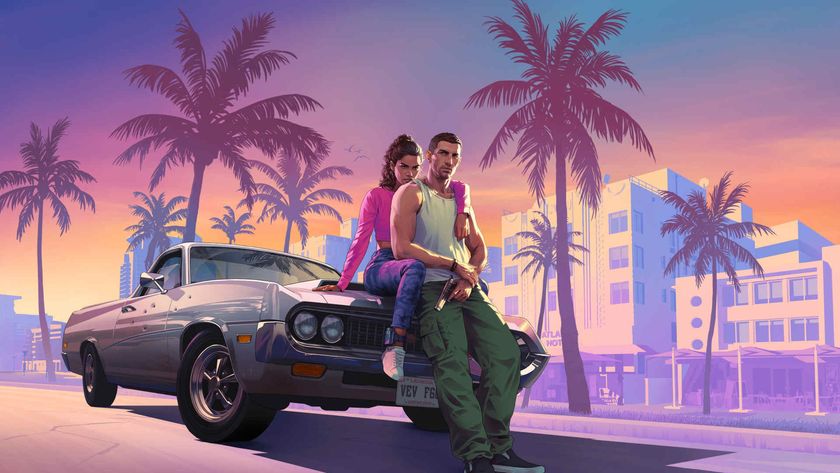There are 5 expansions that changed the face of video games – here's why Shadow of the Erdtree is one of them
Opinion | The best expansions are still worth talking about 25 years later
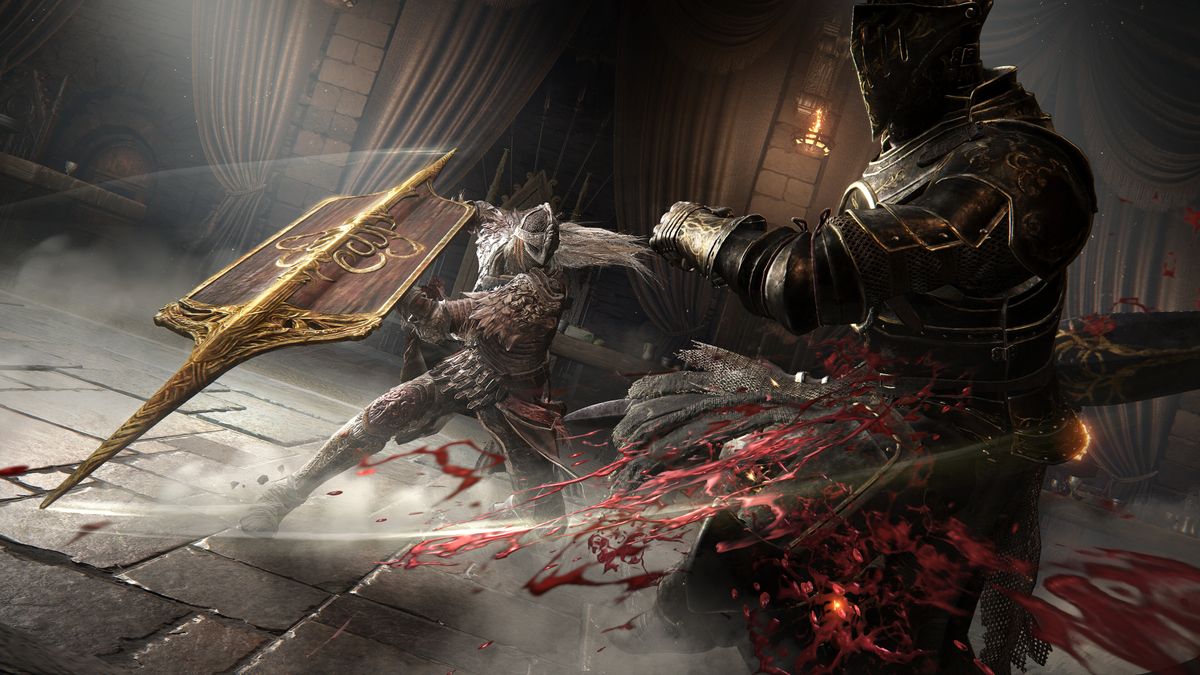
During my first half-hour in Elden Ring: Shadow of the Erdtree, I couldn't stop whistling 'Liquidator' by Harry J. Allstars. Those old enough may have their own fond memories of the reggae instrumental toe-tapper from when it first released in 1969, but my cherished recollections came 30 years later at the turn of the millennium.
Picture me, slouching down the broad crumbling concrete walkway that leads to Castle Ensis, my shield raised, slaying shambling foes and dodging a barrage of arrows with this tune stuck firmly in my head. And then picture me speeding down a late-60s London thoroughfare in my Austin Powers-inspired, Union Jack-adorned, Jaguar E-Type rip-off en route to blow up the Queen's Park Rangers football team bus with the song blaring out of my car's radio.
The connection? GTA: London was the first video game expansion I ever played, and the first I fell in love with. 'Liquidator' is burnt into my brain as a result, and to be honest I'm hardly complaining. Shadow of the Erdtree is the latest expansion I've played, on the other hand, and the latest to make me fall in love.
Casting a wider critical eye over expansions more generally, I'd confidently say there are five that've changed the face of video games spanning the last 25 years. In chronological order, here's how they changed the conversation, the legacy they left, and why they're still so relevant to this day.
The 5 most important video game expansions
5. GTA: London 1969
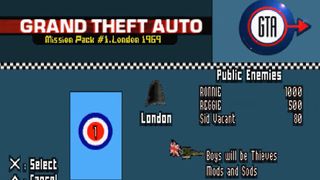
Expansion for: Grand Theft Auto (1997)
Year: 1999
Platform(s): PC, PS1
Given the interminable impact the series would go on to have, it seems almost prescient that the first-ever PlayStation expansion was for the original Grand Theft Auto. Launched into a console world already occupied by the likes of Tomb Raider, Resident Evil and Tekken, GTA landed with a bang among some great, expansion-worthy company.
Still, it was DMA Design's pre-Rockstar acquisition crime simulator that was granted that honour, and the 30-year time hop and trans-Atlantic pivot worked ever so well, offering latitude for different language, outfits, weaponry, cars, and, indeed soundtracking. This was an expansion as it should be – an iteration on an original idea that built on its key beats without revolutionizing enough to enter sequel territory, years before Sega's Dreamcast first introduced the idea of console DLC. Better still, GTA London showed what was possible for the series, that the action could easily spill beyond the bounds of the OG Liberty City and its chaos-driven boroughs.
Sign up to the 12DOVE Newsletter
Weekly digests, tales from the communities you love, and more
Moreover, getting games to market might have been a less arduous process during this era, but the fact that DMA launched GTA, GTA: London 1969, the PC-only GTA: London 1961, and GTA 2 between 1997 and 1999 is pretty remarkable. Fast forward another five years and the 3D universe's GTA 3, Vice City and San Andreas trifecta was in the hands of the public. Two years after that again, and GTA 3 and Vice had their own masterfully-handled expansions too.
4. The Elder Scrolls 4: Oblivion – Shivering Isles
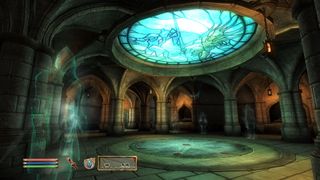
Expansion for: The Elder Scrolls 4: Oblivion
Year: 2007
Platform(s): PS3, Xbox 360, PC
The Elder Scrolls 4: Oblivion needs little introduction, but it's easy to underplay what this game owes to the industry the best part of 20 years on from its original release. Improving on just about every foundation laid by Morrowind, Oblivion pushed every traditional RPG convention to its limit while simultaneously rolling out entirely new ones – not least fully-voiced NPCs – which in turn leveraged a broader, more mainstream appeal. The role-playing genre has always been synonymous with PC players, however landing on PS3 and Xbox 360 helped dispel an association that's pretty much non-existent today.
After a string of uninspiring cosmetic-facing DLC packs (the less said about horse armour, the better), Bethesda launched Knights of the Nine, a decent but short expansion that was good if not great. On March 27, 2007, however, Shivering Isles knocked it out of the park as a fully-fledged extension of Oblivion, adding a totally new location in a magical realm, more than 30 hours of added game time, new quests, baddies, bosses, armour, spells and more and what was easily one of the – if not the – most sophisticated expansions ever made to that point. We didn't know it then, but Shivering Isles was but a peek behind the curtain at what Bethesda was capable of while pushing the bounds of the hardware it was working with. Four-and-a-half years later, and the world was introduced to Skyrim.
3. Grand Theft Auto 4: The Lost and Damned

Expansion for: Grand Theft Auto 4
Year: February 17, 2009 (Xbox); April 13, 2010 (PS3, PC)
Platform(s): Xbox 360, PS3, PC
Single-player Grand Theft Auto DLC has become a bit of a white whale in recent years, but back before the GTA Online boom, the fourth-numbered crime sim spectacle was given two of the best off-shoot stories the series has ever seen. The Lost and Damned came first, followed by The Ballad of Gay Tony, each focusing on peripheral characters featured in the base game – Johnny Klebitz, vice-president of the Liberty City chapter of The Lost MC motorcycle gang; and Luis Fernando Lopez, a former drug dealer-now-bodyguard of nightclub owner and socialite Anthony "Gay Tony" Prince. Each story affects the other, and white running concurrently with Nico Belic's primary exploits, each expansion offers fascinating crossover and extra insight into the goings on in Liberty City's central narrative.
Arguably The Lost and Damned's biggest, most revolutionary (or controversial) point of note, however, had nothing to do with its mechanics or overlapping storylines. The Lost and Damned was an Xbox 360 timed exclusive – first launched in early 2009 for Microsoft's then flagship console, and not arriving on PS3 and PC until well over a year later. Timed exclusives are relatively commonplace in the modern landscape of video games, but this was the first time a series so big in stature had frozen such a sizable portion of the console market out for what was a pretty significant length of time. Suddenly timed exclusivity had entered mainstream consciousness. If something as big as Grand Theft Auto could do, then any series could.
2. The Witcher 3: Blood and Wine
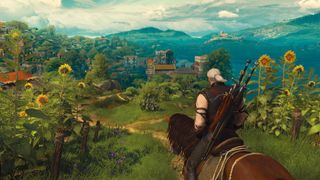
Expansion for: The Witcher 3
Year: 2016
Platform(s): PC, PS4, Xbox One, Nintendo Switch
With Blood and Wine, there was a clear sense that CD Projekt Red wanted to give players more of what they loved, without paying any of The Witcher 3's base game issues, well, any mind at all. For the vast majority, it worked, leaving us with what is undoubtedly one of the best narrative conclusions to any video game ever. One of The Witcher 3's crowning features – and, indeed, one of CDPR's central tenets in their approach to world-building – is its deep and engaging side quests, whereby missions off the beaten track have the same scope and narrative focus as those contained within the primary storyline.
Blood and Wine, in essence, was a full expansion dedicated to these narrative loose ends that brought story threads full circle, galvanised existing lore, and added new context to characters as their arcs wound down just before the credits rolled for the final time.
1. Elden Ring: Shadow of the Erdtree
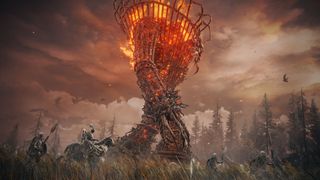
Dying in a FromSoftware game is inevitable - but is Shadow of the Erdtree really as hard as people say?
Expansion for: Elden Ring
Year: 2024
Platform(s): PC, PS5, Xbox Series X and S
If I'd had my way, Shadow of the Erdtree would be shit. Well, maybe not that bad, but I wanted FromSoftware to adhere to the same speedy development timeline it had stuck to in the past, whereby DLC would land six to eight months or so after the launch of whatever game was in-line for an expansion. Which is to say: if things had gone my way, the first (and likely only) Elden Ring expansion would have been rushed out the door, less than half the size of what we now have, with a quarter of the features, foes and weapons, and… yeah, let's just say I'm glad the developers didn't listen to me.
'Quintessential' isn't a word I tend to use lightly, but it's without question the right one here: Elden Ring's Shadow of the Erdtree is the quintessential expansion. Not only that, it's in essence a game unto itself. It's massive, masterfully designed, brimming with character, god-awful baddies and some of the most bastard-hard boss battles to feature in any video game, ever – super-duper difficult, even by FromSoftware's standards. Shadow of the Erdtree takes everything the Elden Ring base game does well and improves it, introducing entirely new fighting styles simply by giving us new weapons, which can in turn be used in tandem with previous builds to create weird and wonderful hybrids.
My jokes aside, FromSoftware was under immense pressure to release Shadow of the Erdtree sooner given the demand for the DLC, but broke from its traditional schedule pattern and stuck to its guns. What's come out the other end is nothing short of remarkable, and as close to perfection as I think we can hope for at this point with regards to great games delivering great expansions. Through all of this, a new standard has been set – for FromSoftware, and for the rest of the games industry.
If you're yet to jump into the Realm of Shadow, check out our glowing Shadow Of The Erdtree review

Joe Donnelly is a sports editor from Glasgow and former features editor at 12DOVE. A mental health advocate, Joe has written about video games and mental health for The Guardian, New Statesman, VICE, PC Gamer and many more, and believes the interactive nature of video games makes them uniquely placed to educate and inform. His book Checkpoint considers the complex intersections of video games and mental health, and was shortlisted for Scotland's National Book of the Year for non-fiction in 2021. As familiar with the streets of Los Santos as he is the west of Scotland, Joe can often be found living his best and worst lives in GTA Online and its PC role-playing scene.


